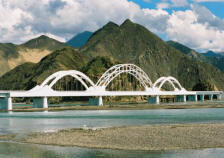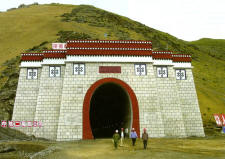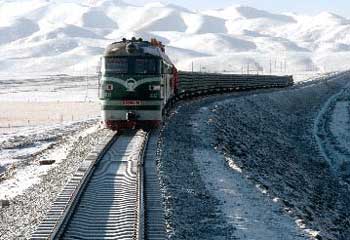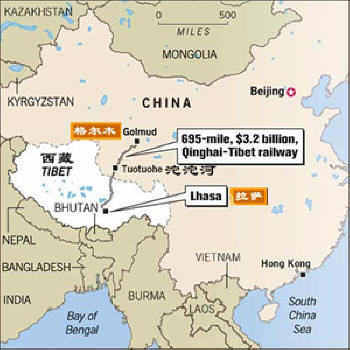Qinhai - Tibet Railway
China today launched the
first-ever passenger trains to and from
Tibet on the world's highest railway, an
event described by President Hu Jintao as a
"great miracle" and "another magnificent"
achievement in the communist nation's march
towards modernization.
Hu, also general secretary of the ruling
Communist Party of China, attended the
launch ceremony of the
Qinghai-Tibet railway
in Golmud city in Northwest China's Qinghai
province.
He said that the opening to traffic of the
Qinghai-Tibet railway is "another
magnificent accomplishment we have achieved
in our socialist modernization drive."
Construction of
Qinghai-Tibet railroad is a
long-cherished dream of generations of
Chinese people. "The project is not only a
magnificent feat in China's history of
railway construction, but is also a great
miracle of world's railroad history," he was
quoted as saying by Xinhua news agency.
The Qinghai-Tibet railway stretches from
Xining, capital of Qinghai province, to
Lhasa. The section of 814 km from Xining to
Golmud began operation in 1984 and the
Golmud-Lhasa section started construction on
June 29, 2001.
With 1,142 km section of the railway between
Golmud and Lhasa running along Kunlun and
Tanggula mountains, 960 km of the railway
will be above 4,000 meters, with highest
point at 5,072 meters, at least 200 meters
higher than Peruvian railway in the Andes,
formerly the world's most elevated track.
About USD 3.68 billion had been spent on the
Golmud-Lhasa section which runs 1,142
kilometers.
The railway is the world's highest and
longest plateau railroad and also the first
railway connecting the Tibet autonomous
region with the rest of China.





